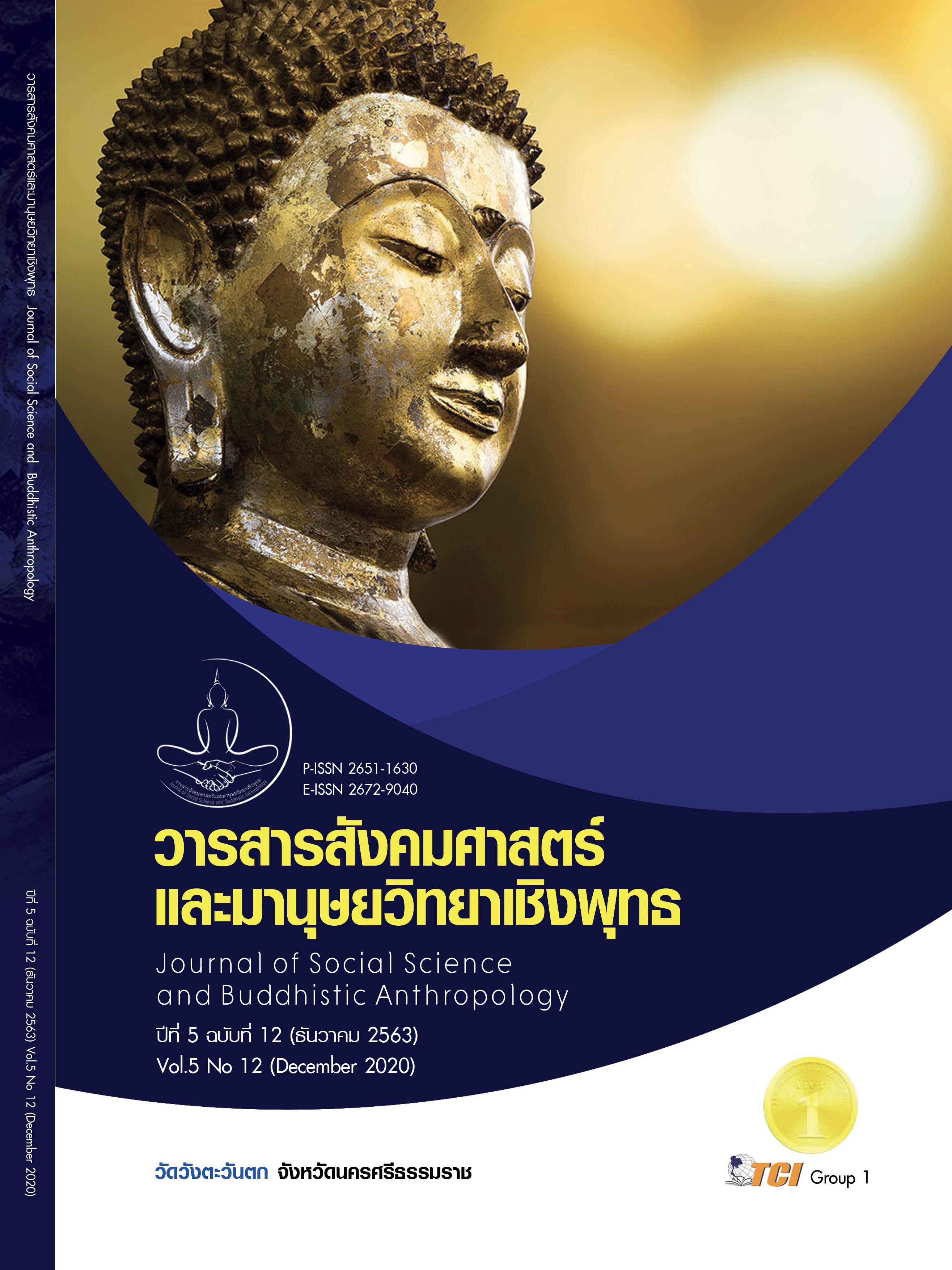COOPERATION BETWEEN THE GOVERNMENT AND PRIVATE SECTORS WITH MINIMUM SECURITY FOR OVERSEAS PRODUCTION PLANTS
Keywords:
Minimum Security, Cooperation, Public Sector, Private Sector, Factories for Producing Foreign ProductsAbstract
The objectives of this research article were to 1) study the problem of cooperation of the public and private sectors, 2) study the factors of cooperation of the public and private sectors and 3) propose guidelines for cooperation between the public and private sectors. This research is a qualitative research. Using descriptive and analytical study methods. In-depth interview the groups of key informants consisted of Group 1: Prachuap Khiri Khan, Ranong Customs House and Laem Chabang Port, 10 persons Group 2 Customs, Bangkok Port the Board of the Importers and Exporters Association of Thailand for the period of 2018 - 2020, including 10 persons and Group 3, brainstorming from group 1 and group 2, total 20 people. The results of the research showed that: The problem of export promotion measures through taxation, which is a tool for calculating the tax refund received from product exports, entrepreneurs must understand the relationship of information between the export declaration. Production formula and import declaration the duty refund of measures 19 bis of the Customs Act (No. 9) BE 2482 for cooperation factors Adhere to the WTO rules, the 1994 General Agreement on Tariffs and Trade (GATT 1994) relating to the Freedom of Crossing the Goods Principles (Article 5). Principles of fee collection (Article 8) and principles of transparency (Article 10). The government is used as a guideline for developing other groups of entrepreneurs in the supply chain system to be entrepreneurs producing foreign products with an understanding of the appropriate processes and procedures. And should allow the carrier to correct the information submitted in advance without considering it is an offense if corrected.
References
จรัญ มะลูลีม. (2557). รัฐอิสลามในอิรักและซีเรีย. กรุงเทพมหานคร: โรงพิมพ์สำนักข่าวกรองแห่งชาติ.
จิราภรณ์ ศิระวรกุล. (2560). ออสเตรเลียกับการต่อต้านการก่อการร้ายในอินโดนีเซีย ภายหลังเหตุการณ์ลอบวางระเบิดบนเกาะบาหลี. วารสารสาขามนุษยศาสตร์สังคมศาสตร์และศิลปะ, 1(2), 1-12.
ทิพย์อาภา เสฐจินตนิน. (2551). การรักษาความปลอดภัยภาคเอกชน: ศึกษาเฉพาะกรณีการกำกับดูแลและการบังคับใช้กฎหมายของหน่วยงานรักษาความปลอดภัย. ใน วิทยานิพนธ์นิติศาสตรมหาบัณฑิต สาขาวิชานิติศาสตร์. จุฬาลงกรณ์มหาวิทยาลัย.
ผู้ให้ข้อมูลสำคัญกลุ่มที่ 1. (29 มิถุนายน 2563). ความร่วมมือของภาครัฐร่วมภาคเอกชนกับการรักษาความปลอดภัยขั้นต่ำสำหรับโรงงานผลิตสินค้าส่งออกต่างประเทศ. (ไพบูลย์ ผลดี, ผู้สัมภาษณ์)
ผู้ให้ข้อมูลสำคัญกลุ่มที่ 2. (21 กรกฎาคม 2563). ปัจจัยความร่วมมือของภาครัฐร่วมภาคเอกชนกับการรักษาความปลอดภัยขั้นต่ำสำหรับโรงงานผลิตสินค้าส่งออกต่างประเทศ. (ไพบูลย์ ผลดี, ผู้สัมภาษณ์)
ผู้ให้ข้อมูลสำคัญกลุ่มที่ 3. (22 กรกฎาคม 2563). แนวทางความร่วมมือของภาครัฐร่วมภาคเอกชนกับการรักษาความปลอดภัยขั้นต่ำสำหรับโรงงานผลิตสินค้าส่งออกต่างประเทศ. (ไพบูลย์ ผลดี, ผู้สัมภาษณ์)
พิมพ์สุภัค เอี่ยมสะอาด. (2551). การศึกษาสภาพการดำเนินการปัญหาและความต้องการความช่วยเหลือของธุรกิจนำเข้าและส่งออกในการขอคืนอากรตามมาตรา 19 ทวิเขตกรุงเทพมหานครและปริมณฑล. ใน วิทยานิพนธ์ครุศาสตร์อุตสาหกรรมมหาบัณฑิต สาขาวิชาวิศวกรรมเครื่องกล. มหาวิทยาลัยเทคโนโลยีพระเจ้าเกล้าพระนครเหนือ.
ศิรินันท์ จันทจวง. (2556). อาชญากรรมทางพาณิชยนาวีซึ่งเป็นความผิดที่รนอกเหนือไปจากการกระทำอันเป็นโจรสลัดและการปล้นทรัพย์. วิทยานิพนธ์นิติศาสตรมหาบัณฑิต สาขากฎหมายการค้าระหว่างประเทศ, มหาวิทยาลัยธรรมศาสตร์.
เอกพร รักความสุข. (2559). การวิจัยเชิงคุณภาพ: หลักการและแนวปฏิบัติ. กรุงเทพมหานคร : โรงพิมพ์เดือนตุลา.
Andrew Grainger. (2019). Customs management in multinational companies. Journal of Management Information Systems, 10(2), 17-36.
BBC News. (2018). Islamic State and the crisis in Iraq and Syria in maps. Retrieved February 2, 2020, from http://www.bbc.com/news
Brent, L. Smith et al. (2006). Pre-Incident Indicators of Terrorist Incidents: The Identification of Behavioral, Geographic, and Temporal Patterns of Preparatory Conduct. In Terrorism Research Center in Fulbright College. University of Arkansas.









